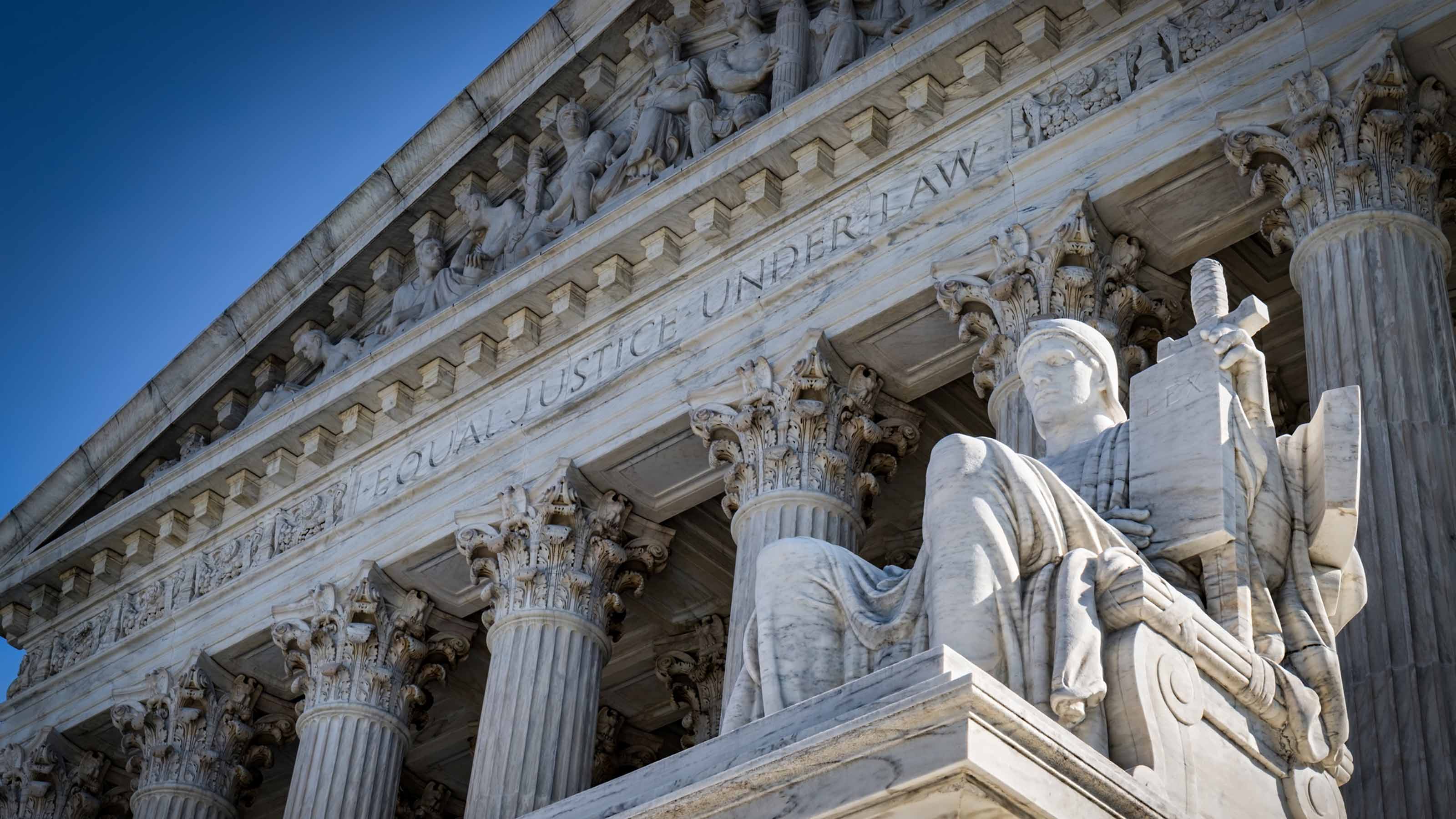Understanding a New Supreme Court’s Impact on Consumers, Savers and Investors
With the arrival of Amy Coney Barrett on the bench and a new president set for inauguration, what could that mean for American businesses and the American people themselves?


Profit and prosper with the best of Kiplinger's advice on investing, taxes, retirement, personal finance and much more. Delivered daily. Enter your email in the box and click Sign Me Up.
You are now subscribed
Your newsletter sign-up was successful
Want to add more newsletters?
Decisions by the Supreme Court have a direct impact on consumers, savers and investors, and a president’s ability to act without Congress. We often think only of landmark Supreme Court cases affecting social policy or balancing the president’s and Congress’ differences, but the Supreme Court also plays a significant role in businesses’ relationships with their employees and customers, requiring arbitration over disputes and limiting opportunities for class action lawsuits and whistleblower protections.
Role and Relevance of the Courts
The Senate confirmed Judge Amy Coney Barrett to the Supreme Court in late October. Such appointments have always stimulated spirited policy and political debates, particularly in the past 20 years, as the Executive and Legislative branches have become more divided and looking for another way to get social change that the other won’t provide. The fireworks around these appointments often don’t look at the likely impact on businesses and consumers, but there is plenty of change that comes there too, including a recent decision to allow a consumer class-action case against Apple for monopolizing iPhone apps in its App Store.
The expectation that a “conservative” court is likely to throw out “liberal” legislation often misses the point of the Supreme Court’s history, function and track record. For example, the thought that another conservative justice on the Supreme Court could mean the end to the Affordable Care Act, leaving millions of Americans without health care coverage, doesn’t seem to square with the actual Supreme Court activities, especially concerning Obamacare.
From just $107.88 $24.99 for Kiplinger Personal Finance
Become a smarter, better informed investor. Subscribe from just $107.88 $24.99, plus get up to 4 Special Issues

Sign up for Kiplinger’s Free Newsletters
Profit and prosper with the best of expert advice on investing, taxes, retirement, personal finance and more - straight to your e-mail.
Profit and prosper with the best of expert advice - straight to your e-mail.
The Supreme Court also reviews government administrative actions protecting businesses and individuals from “over-reaching” regulation, which happens when federal agencies try to do what Congress didn’t do, or maybe even decided not to do, through their own regulations. The Supreme Court used to give agencies the benefit of the doubt, but that’s changing, as the court is saying increasingly that government agencies are responsible for interpreting the laws as written — more of a strict constructionist viewpoint – and not what they think they ought to say.
Figuring Out How the Supreme Court Affects Me or My Business
Because Supreme Court decisions usually don’t look like they are about business and consumer issues, but rather about agreements, laws and the Constitution, it is hard sometimes to see how a Supreme Court decision will affect individuals or businesses. Giving businesses a break from “over-reaching” regulation is one thing. Seeing how the court sides with businesses against their employees and customers is another.
The trend has been to favor companies over their customers and employees. Looking at over 500 Supreme Court cases from 1946 to 2018 involving a public company, the court sided with the companies 43% of the time and were about 50/50, or slightly less for all but the Chief Justice Roberts’ Court, which has grown to be about 70% in favor of businesses. Many of the recent cases have seven or all nine justices voting for the business interest, irrespective of the president's political party who appointed them.
How Will the Supreme Court Be Different in 2021?
Contentious hearings and pre-confirmation publicity are mostly about how new justices will decide on social issues, including immigration, abortion, gender and racial equality, and on whether they will change old, politically sensitive decisions. As much as we may disagree about these social issues, we likely mostly agree on protecting our own employment, investing and consumer interests.
What will likely be most different is that the Supreme Court will be getting out of the business of legislating social action, such as immigration or climate change, and pushing these issues back to Congress and the White House to work out. This will frustrate hopes that the Supreme Court would become more activist on social issues and on protecting labor and consumer interests.
Another big change will be reducing the freedom presidents have had in rolling out their policies without getting new legislation first. Executive orders and similar presidential directives have taken the place of waiting for Congress to act. This has reached new, high levels in the past 20 years, but the three new Supreme Court justices seem ready to push back on the president and the executive branch acting without Congress in areas such as immigration, climate change, labor rights, consumer protections, antitrust, business and banking.
Why This Matters
If the Senate stays in Republican hands, a new President Biden will be hard-pressed to get Congress to enact his proposals on consumer and investor protections, labor rights, buy-America, racial justice, climate change, immigration and higher taxes for U.S. corporations and wealthy families. So, we can expect he will try to do as much of it as possible through executive actions and changing regulations, which ultimately will be challenged in the courts, delay benefits and create uncertainty for consumers, savers and investors.
A strict constructionist viewpoint on the Supreme Court may also favor business over labor and consumers, continuing the recent trend of the Chief Justice Roberts Court. Paying attention to new initiatives at the Consumer Financial Protection Bureau, the Securities and Exchange Commission, the Departments of Treasury, Commerce, Justice and Labor, and the financial regulators will give us some ideas as to how our individual financial welfare may change.
Profit and prosper with the best of Kiplinger's advice on investing, taxes, retirement, personal finance and much more. Delivered daily. Enter your email in the box and click Sign Me Up.

Dr. Steven L. Skancke is Chief Economic Adviser at Keel Point, a $2.5 billion wealth management firm. Prior to 2007, Dr. Skancke was for 24 years a Washington, D.C.-based merchant banker. Dr. Skancke served on the White House National Security Council staff of Presidents Nixon and Ford and on the U.S. Treasury and White House Cabinet Council on Economic Affairs teams of Presidents Carter and Reagan. He is a GWU adjunct professor and the co-author of two books.
-
 Timeless Trips for Solo Travelers
Timeless Trips for Solo TravelersHow to find a getaway that suits your style.
-
 A Top Vanguard ETF Pick Outperforms on International Strength
A Top Vanguard ETF Pick Outperforms on International StrengthA weakening dollar and lower interest rates lifted international stocks, which was good news for one of our favorite exchange-traded funds.
-
 Is There Such a Thing As a Safe Stock? 17 Safe-Enough Ideas
Is There Such a Thing As a Safe Stock? 17 Safe-Enough IdeasNo stock is completely safe, but we can make educated guesses about which ones are likely to provide smooth sailing.
-
 Missed Your RMD? 4 Ways to Avoid Doing That Again (and Skip the IRS Penalties), From a Financial Planner
Missed Your RMD? 4 Ways to Avoid Doing That Again (and Skip the IRS Penalties), From a Financial PlannerIf you miss your RMDs, you could face a hefty fine. Here are four ways to stay on top of your payments — and on the right side of the IRS.
-
 What Really Happens in the First 30 Days After Someone Dies (and Where Families Get Stuck)
What Really Happens in the First 30 Days After Someone Dies (and Where Families Get Stuck)The administrative requirements following a death move quickly. This is how to ensure your loved ones won't be plunged into chaos during a time of distress.
-
 AI-Powered Investing in 2026: How Algorithms Will Shape Your Portfolio
AI-Powered Investing in 2026: How Algorithms Will Shape Your PortfolioAI is becoming a standard investing tool, as it helps cut through the noise, personalize portfolios and manage risk. That said, human oversight remains essential. Here's how it all works.
-
 A Newly Retired Couple With a Portfolio Full of Winners Faced a $50,000 Tax Bill: This Is the Strategy That Helped Save Them
A Newly Retired Couple With a Portfolio Full of Winners Faced a $50,000 Tax Bill: This Is the Strategy That Helped Save ThemLarge unrealized capital gains can create a serious tax headache for retirees with a successful portfolio. A tax-aware long-short strategy can help.
-
 5 Retirement Myths to Leave Behind (and How to Start Planning for the Reality)
5 Retirement Myths to Leave Behind (and How to Start Planning for the Reality)Separating facts from fiction is an important first step toward building a retirement plan that's grounded in reality and not based on incorrect assumptions.
-
 I'm a Financial Adviser: Silence Is Golden, But It Hurts Your Heirs More Than You Think
I'm a Financial Adviser: Silence Is Golden, But It Hurts Your Heirs More Than You ThinkTalking to heirs about transferring wealth can be overwhelming, but avoiding it now can lead to conflict later. Here's how to start sharing your plans.
-
 Will Your Children's Inheritance Set Them Free or Tie Them Up?
Will Your Children's Inheritance Set Them Free or Tie Them Up?An inheritance can mean extraordinary freedom for your loved ones, but could also cause more harm than good. How can you ensure your family gets it right?
-
 I'm a Financial Adviser: This Is the Real Key to Enjoying Retirement With Confidence
I'm a Financial Adviser: This Is the Real Key to Enjoying Retirement With ConfidenceA resilient retirement plan is a flexible framework that addresses income, health care, taxes and investments. And that means you should review it regularly.